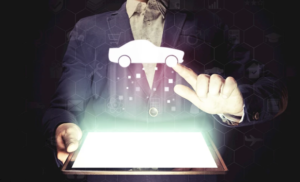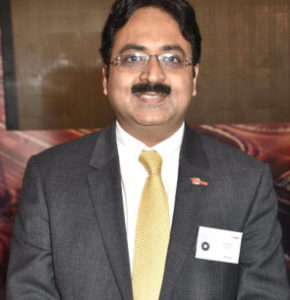The changing face of auto retail in India

With the influx of digital and new retail models coming to the forefront, we got a chance to speak to Mr. Vinkesh Gulati, Hony. Secretary at Federation of Automobile Dealers Associations about the changing face of auto retail in India.

Q1. Digital is becoming the starting point for an automobile purchase journey. Do you think this is also the norm for two wheeler customers currently? Also, how do you see technology such as data analytics & digital tools changing the Two Wheeler buying experience going forward?
Mr. Vinkesh Gulati: Digital has indeed become a starting point for most “high involvement” purchase journeys, even other than Automobiles. Most urban prospective buyers are defining their Consideration Set through digital tools, coupled with their knowledge & experience.
While all this is happening, on the contrary, more than 70% of India still lives in the rural areas where “Touch & Feel” is a set norm. This coupled by the fact that a huge portion of the population is illiterate makes me believe that data analytics and digital tools have the potential of changing the Automobile purchase journey of high-end two wheelers, say Rs. 75,000+ (Sports Segment & Lifestyle Segment); but digital tools have still long inroads to make as far as the basic Economy and Commuter segment go.
Q2. Companies such as Ather are choosing to sell through the online channel and experience centres, with doorstep delivery and service. Do you see the role of dealers substantially diminishing in the coming future and the need for a transformation of two wheeler retail?
Mr. Vinkesh Gulati: Dealers are here to stay. It’s a different thing that their structure will keep evolving. Their operation will get more and more digitised. Later, they may even become multi-brand stores. But as far as Automobile Dealerships go, Dealers will remain and will continue to remain a very important part of the value chain.
More than 70% of 2-wheeler sales happen in the rural. Therefore selling through online channel followed by doorstep delivery is not possible. Essential customer needs like Test-Rides, Touch-&-Feel, Exchange of existing vehicles – and its transfer documentation, Flexible Finance Schemes, etc. need a ‘physical’ and trustable enabler. It is not possible to shift all these roles to digital.
Last but not the least, 2-wheelers require Service, regular service; Digital tools will not be able to manage that. You need a brick-and-mortar dealership to provide after-sale-Service.
The role of Automobile dealerships will keep on changing and evolving; but it will not diminish anytime soon.
Q3. Connectivity is another rising trend due to which vehicles are becoming more software oriented and are equipped with over-the-air (OTA) update capabilities, this is going to reduce the need for similar mechanical components, which need regular servicing. Do you feel this will pose a threat to the aftersales business of dealerships in the future?
Mr. Vinkesh Gulati: This might be true to 30-40% of the components and to 15-20% of the 2wheelers (the high-end scooters and motorcycles). But for the largest part of the Industry, i.e. the Economy and Commuter segments, such a technological transformation is nowhere in sight.
I see no threat to the after-sales business thru these innovations. In-fact they might help the organised segment, as the roadside technicians will not to be able to assist much on “software-oriented” and “technologically advanced” components.
Q4. How is FADA supporting its members in modernizing their operations and further streamlining them for the future?
Mr. Vinkesh Gulati: F A D A is the apex national body of Automobile Retail Industry in India and as any other apex body, our priority is to take utmost care of our members by helping them with their present concerns and also preparing them for the future.
In Indian Auto Trade business, every state has its unique set of opportunities/challenges which can only be handled if we have a good local representation. To facilitate this in an organised manner, F A D A has now created State Chapters and has also appointed State Chairpersons. This is helping our members to raise their concerns in a much more efficient manner with the State Authorities. This is about our present.
At the same time, we are also keeping the future of Auto Trade in our mind and hence have launched F A D A Academy which will prepare current and future dealer leadership to build front-end and back-end processes, improve customer and technical operations and enhance financial results of each department in the dealership. The Academy will also work towards providing world class training and development programs for Dealer Principles, CEO’s, Service Leaders, Finance Leaders and Sales Leaders. The course covered will benefit our members and their teams to manage their business more efficiently.
In a nutshell, F A D A Academy aims to evolve into a mechanism for constant learning amongst the fraternity. When disruptions become inevitable, ignorance can prove to be fatal. Through this academy we would not only provide a platform for acquiring knowledge but also encourage our members to think creatively and adapt to change!